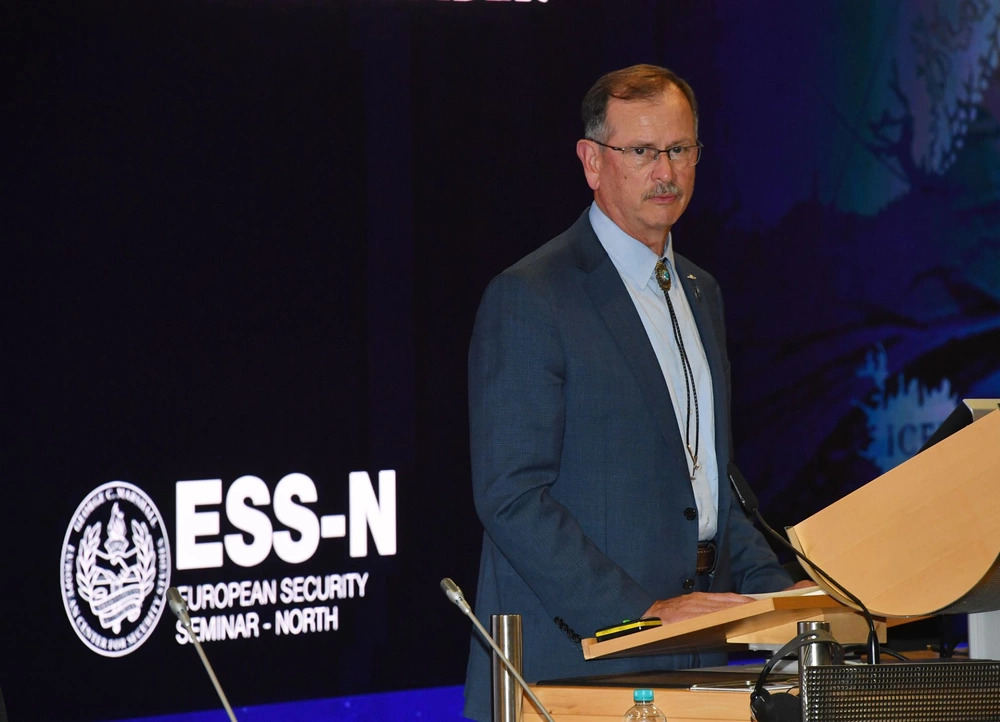
The Ted Stevens Center for Arctic Security Studies, in partnership with the George G. Marshall Center for Security Studies brought together senior-level security practitioners from more than 15 countries to explore transnational security issues and emerging challenges in the High North.
The European Security Seminar- North ran from Sept. 11-15, with 33 participants engaged in discussions on topics such as NATO in the High North, the changing Arctic environment, strategic competition, and security cooperation. Throughout the week, participants engaged in both plenary and breakout sessions to examine current and emerging Arctic security challenges.
TSC and GCMC were honored to welcome Dr. Franziska Hagedorn, Head of Arctic Policy, German Foreign Office (DEU) and Mr. Greg Pollock, Principal Director, Arctic & Global Resiliency Policy (USA) as ketnote speakers. Center Directors, Mr. Barre Seguin and Mr. Randy “Church“ Kee, kicked off the week with opening remarks.
“Fortune favors those who keep a weathered eye” on the Arctic Basin and the changes it is going through, said retired Maj. Gen. Randy “Church” Kee, Senior Advisor of TSC. “We’re now looking at well in advance of the year 2050 the potential for an ice-free season across the Central Arctic Basin. A new ocean, a new opportunity and new security risks.”
Throughout the week, participants engaged in candid discussions on the way ahead in the Arctic region. The dialogue emphasized the importance of security cooperation to bolster our collective defense capability and regional security. Speakers highlighted the value of a multinational approach to Arctic security, with particular emphasis on the 31, soon to be 32, NATO states.
In his plenary remarks, Vice Adm. Daniel Dwyer, Commander, U.S. 2nd Fleet and JFC Norfolk (NATO) noted that, “as the effects of climate change become more pronounced and apparent, the Arctic will become an increasingly important area; NATO and Joint Forces Command Norfolk are committed to maintaining the security of the region, safeguarding Alliance security, promoting dialogue and minimizing tensions. While Russia continues to increase its military footprint in the Arctic, NATO working with our partners, continues to invest in new defensive capabilities, conducts exercises and demonstrates our commitment to the peace, prosperity and access for all nations.”
In breakout working groups, the participants explored actionable ways to promote stability and security in the Arctic. Participants advocated for a security approach that prioritizes human security issues such as food education, infrastructure development, environmental concerns, and Indigenous and local community resilience, while also promoting the rules based international order, sovereignty, interoperability, and freedom of navigation.
As the environment evolves, so too does our thinking about the Arctic region. ESS-N promotes innovative thinking and the invaluable exchange of ideas through a comprehensive and enriching experience for senior security practitioners from the High North and beyond. For more information about the course, visit the TSC website here.
